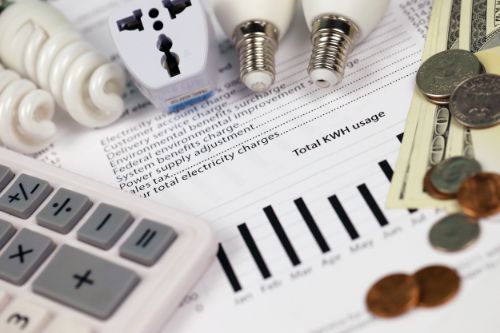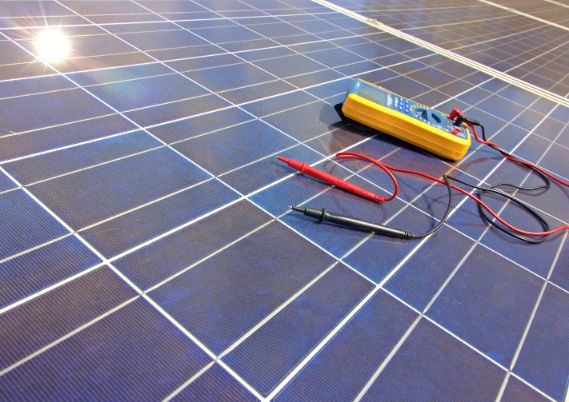Investment decisions shape the future, and nowhere is this more evident than in the energy sector. As we seek solutions to meet the global demand for power in an eco-friendly and sustainable manner, solar energy emerges as a frontrunner. This renewable energy source offers more than just an alternative to traditional and rapidly depleting fossil fuels. It presents a multi-faceted approach to problem-solving, benefiting not just individual pocket books, but also the global environment, societal structures, and political landscapes. Here are 10 compelling reasons why investing in solar energy makes a wise and future-focused choice.
Investing in solar energy presents a multitude of benefits. It’s not just a shift from traditional energy sources to more renewable ones, but it’s also a decision that can impact many aspects of life, from the economy to the environment, to social structures and individual finances. Here are 10 reasons to invest in solar energy:
- Renewable Energy Source: Solar energy is a renewable source of energy that we will not run out of, unlike oil or coal. As long as the sun is shining, we can harness its power. This type of energy production is sustainable and can be relied on for the long term.
- Reduces Electricity Bills: By generating your electricity, you reduce the amount of energy you need to buy from the grid, which can result in significant savings on your electricity bills. Also, in some areas, you can sell the excess electricity you produce back to the grid, which can result in an additional income stream.
- Environmental Impact: Solar energy is one of the cleanest sources of energy. It doesn’t produce greenhouse gases and doesn’t pollute the water. Solar power plants also require very little water for their operation, compared to nuclear power plants, for instance.
- Energy Independence: By investing in solar energy, countries can move towards energy independence, reducing their reliance on imported fossil fuels. This can have significant geopolitical implications, increasing a nation’s energy security.
- Job Creation: The solar industry creates jobs at a much faster rate than the overall U.S. economy. This growth is expected to continue as the costs of solar technologies decline and the demand for solar energy increases. Jobs created in this industry are varied, ranging from solar panel installers, and sales and marketing experts, to developers and researchers.
- Low Maintenance Costs: Once installed, solar energy systems require very little maintenance. The primary task is to keep the panels clean and check the inverter and cables for efficient operation, which can be done by the owner or a professional company.
- Technological Advancements: With continuous advancements in technology, solar panels are becoming more efficient, storing more energy, and are available in different types that can be adjusted to specific needs. Battery storage technology is also evolving rapidly, making solar power increasingly viable as a completely standalone power solution.
- Diverse Applications: Solar energy can be used for diverse purposes, such as generating electricity (photovoltaics) or heat (solar thermal), distilling water, powering space satellites, and even for indoor and outdoor lighting through the use of solar-powered LEDs.
- Grid Stability: During peak hours, the electricity grid often struggles with high demand. However, solar energy can maintain a balanced supply, especially during summer when the electricity demand is high due to air conditioners. This can help improve grid stability.
- Economic Savings for Government: By reducing energy costs, individuals and businesses can redirect their savings into the local economy, thereby improving the economy’s overall health. Governments also save on grid infrastructure maintenance and expansion since solar systems are usually distributed and decentralized.
Investing in solar energy has numerous benefits, from promoting sustainability and reducing environmental damage to saving costs and creating jobs. The future of solar energy seems bright, and investing in it now may yield positive returns in the long run.
Renewable Energy Source
 Solar energy is an excellent renewable source of energy, and it’s one of the key advantages that set it apart from non-renewable sources like oil and coal. The term “renewable” refers to the fact that the energy source replenishes naturally and regularly, in this case, through daily sunshine. The sun has been shining for about 4.5 billion years and it’s expected to keep doing so for another 5 billion years or so, according to astrophysicists. Therefore, we can predict with high certainty that solar energy is a long-lasting and sustainable source of power.
Solar energy is an excellent renewable source of energy, and it’s one of the key advantages that set it apart from non-renewable sources like oil and coal. The term “renewable” refers to the fact that the energy source replenishes naturally and regularly, in this case, through daily sunshine. The sun has been shining for about 4.5 billion years and it’s expected to keep doing so for another 5 billion years or so, according to astrophysicists. Therefore, we can predict with high certainty that solar energy is a long-lasting and sustainable source of power.
Moreover, unlike the extraction and burning of fossil fuels, the conversion of sunlight into electricity doesn’t release harmful greenhouse gases. This process doesn’t require substantial water resources, nor does it lead to significant landscape alteration or harmful waste products. It’s an inherently clean energy production method, contributing to the mitigation of climate change and the preservation of natural resources.
Another aspect to consider is that solar energy production aligns with energy consumption patterns. Power demand tends to peak during daylight hours when temperatures are high and air conditioning systems work harder. Conveniently, this is also when solar power systems generate the most electricity. This means solar energy can help maintain a steady supply of electricity, contributing to grid stability and reducing the need for energy storage.
In terms of energy security, solar energy is decentralized, meaning it can be produced where it’s needed, reducing dependence on a centralized grid and long transmission lines, and making it less susceptible to large-scale failures or manipulations.
Solar energy, as a renewable energy source, offers long-term sustainability, contributes to environmental conservation, aligns well with power demand patterns, and provides increased energy security. All these factors make it a highly attractive and reliable energy source for the future.
Reduces Electricity Bills
 One of the most immediate and tangible benefits of investing in solar energy is the potential to significantly reduce, and in some cases even eliminate your electricity bills. This is because once you’ve installed solar panels on your property, you essentially become your energy producer. This is known as a photovoltaic (PV) system, which converts sunlight directly into electricity.
One of the most immediate and tangible benefits of investing in solar energy is the potential to significantly reduce, and in some cases even eliminate your electricity bills. This is because once you’ve installed solar panels on your property, you essentially become your energy producer. This is known as a photovoltaic (PV) system, which converts sunlight directly into electricity.
A significant factor to understand is net metering. Many utility companies offer a system of “net metering” that allows homeowners and businesses to sell their excess solar power back to the grid. When your solar panels produce more electricity than you use, that excess energy is sent back into the grid, effectively running your electric meter backward. This can result in even further reductions to your utility bill, or even earning you credit or payments from your utility company.
In addition, solar power systems can provide more predictable energy costs, offering protection from the fluctuating prices of traditional energy sources. By knowing what your energy costs will be, you can plan and budget more effectively.
The actual savings will depend on several factors, including the size of your solar power system, the amount of sunlight in your location, the rates charged by your utility company, and the amount of energy you use. In some cases, people with solar power systems manage to eliminate their electricity bills.
Moreover, there are also various incentives, grants, and tax breaks available in many places to offset the initial investment in solar power, which can further improve the financial benefits.
So, by reducing or even eliminating your electricity bills, providing the potential for income from excess power generated, and offering a hedge against rising energy costs, solar energy can indeed have a significant positive impact on your finances.
Environmental Impact
 The environmental benefits of solar energy are substantial and multifaceted. Here’s a deeper look into the environmental impact of solar energy:
The environmental benefits of solar energy are substantial and multifaceted. Here’s a deeper look into the environmental impact of solar energy:
Reduced Greenhouse Gas Emissions
Traditional power sources, like coal and natural gas, emit carbon dioxide and other harmful greenhouse gases when burned for energy, which contribute to climate change. Solar panels, on the other hand, generate electricity by converting sunlight directly into electricity via photovoltaic cells, a process that releases no greenhouse gases. Thus, solar energy can significantly reduce our carbon footprint.
Zero Water Pollution
Unlike many traditional power sources, solar energy doesn’t contribute to water pollution. Power plants that burn coal or gas require vast amounts of water for cooling. They often discharge heated water back into bodies of water, which can harm aquatic life. Also, mining and fracking activities can result in water contamination. Solar panels, in contrast, do not pollute water bodies, as they don’t require water for operation.
Minimal Water Usage
Solar photovoltaic systems require minimal water to operate, far less than what’s required for nuclear power plants or even for cleaning coal. This makes solar energy a great choice for areas with water scarcity issues. Concentrated Solar Power (CSP) systems do require water for cooling purposes, but advanced technologies are being developed to reduce the water needed, and dry-cooling technology can be used in water-scarce areas.
Reduced Energy Transportation
Traditional energy sources need to be mined, processed, and transported, often over long distances. This transportation process can result in ecological disturbances and accidents that may lead to environmental contamination. Solar energy, however, can be generated on-site, reducing the need for extensive transportation and associated risks.
Sustainable Growth
Solar power is a form of sustainable development. It supports the growth of economies without degrading the environment or depleting resources for future generations. By contributing to a reduction in harmful emissions and water use, and by offering a renewable and abundant source of power, solar energy can help achieve a more sustainable and resilient energy future.
The environmental benefits of solar energy make it a key player in the transition to a cleaner, more sustainable energy landscape. It’s not just about the cost savings; investing in solar energy is an investment in a healthier planet.
Energy Independence
 Energy independence is a vital factor for any nation, and investing in solar energy can play a crucial role in achieving this. Here’s a more in-depth analysis of how solar energy contributes to energy independence:
Energy independence is a vital factor for any nation, and investing in solar energy can play a crucial role in achieving this. Here’s a more in-depth analysis of how solar energy contributes to energy independence:
Reduced Dependence on Imported Energy
By producing energy domestically through solar power, countries can reduce their dependence on foreign energy sources. This is particularly important for nations that have limited natural resources and rely heavily on imports. With the energy source, the sun, being available in every corner of the world, solar energy provides the opportunity for self-sufficiency.
Greater Energy Security
The more diversified a country’s energy sources are, the less vulnerable it is to potential energy supply disruptions. Since solar energy doesn’t rely on fuel that can be exhausted, it can offer a stable and reliable source of power. Also, since solar power systems can be distributed across many rooftops, the risk of large-scale power outages is reduced, contributing to greater energy security.
Economic Benefits
Reducing the reliance on imported fuels can have significant economic benefits. Money that would have been spent on imports can be kept within the country and invested in local economies. Furthermore, the solar industry creates jobs, which can stimulate economic growth.
Geopolitical Stability
Energy independence can lead to greater geopolitical stability. Dependence on foreign oil, for instance, can create power imbalances and can be a source of conflict. By being energy-independent, countries can have more control over their destiny and reduce potential geopolitical tensions.
Environmental Responsibility
By adopting solar energy, countries can demonstrate their commitment to reducing greenhouse gas emissions and combating climate change. This not only contributes to global efforts to address this critical issue but also positions the country as a leader in renewable energy technologies.
By investing in solar energy, countries can make significant strides towards energy independence, enhancing their energy security, supporting their economies, and contributing to global environmental efforts. It’s an investment that can pay dividends at multiple levels.
Job Creation
 The growth of the solar industry has indeed had a significant impact on job creation, and this is expected to continue. Here’s a more detailed look at how investment in solar energy fosters job growth:
The growth of the solar industry has indeed had a significant impact on job creation, and this is expected to continue. Here’s a more detailed look at how investment in solar energy fosters job growth:
Rapid Job Growth
The solar industry has been growing rapidly over the last decade, and this growth is directly tied to job creation. According to the U.S. Bureau of Labor Statistics, the job of the solar photovoltaic installer is one of the fastest-growing jobs in the U.S., outpacing the average job growth rate significantly.
Variety of Jobs
The jobs created by the solar industry are varied and cater to a wide range of skills and education levels. They range from manual labor jobs like solar panel installation and maintenance to higher skilled jobs like system designers and engineers to sales and marketing roles, and even research and development positions for advancing solar technology.
Local Job Creation
Solar industry jobs are often local since solar panels need to be installed on-site. This can have a significant positive impact on local economies. Additionally, as these jobs cannot be outsourced, they contribute to stable employment opportunities.
Job Quality
Many of the jobs in the solar industry, such as installation, engineering, and sales, are well-paying jobs. Thus, the growth of the solar industry doesn’t just increase the number of jobs but also contributes to the quality of jobs available.
Supporting Industries
The solar industry also supports job growth in other industries. For instance, the need for raw materials supports the mining industry, the manufacturing of panels and other components supports the manufacturing industry, and the need for large-scale solar projects supports the construction industry.
Future Outlook
As the demand for renewable energy increases and the costs of solar power continue to fall, the solar industry is expected to continue its rapid growth, leading to further job creation. Additionally, government policies and incentives supporting renewable energy can also stimulate job growth in the sector.
Investing in solar energy not only promotes a sustainable energy future, but also stimulates job growth, supports local economies, and contributes to economic prosperity.
Low Maintenance Costs
 the low maintenance requirements of solar energy systems contribute to their appeal as a long-term investment. Here are some more details on the maintenance aspects of solar energy systems:
the low maintenance requirements of solar energy systems contribute to their appeal as a long-term investment. Here are some more details on the maintenance aspects of solar energy systems:
Durability
Solar panels are designed to withstand the elements and do not have any moving parts, which reduces the potential for breakage. Most panels are rated to withstand high winds and hail. Moreover, solar panels often come with extended warranties – commonly up to 25 years – offering peace of mind about their longevity.
Cleaning
The most common maintenance task for solar panels is keeping them clean. Dust, dirt, leaves, and other debris can accumulate on the panels and decrease their efficiency. Depending on the local environment and angle of installation, rain may naturally clean the panels sufficiently. In drier or dustier areas, they may need to be cleaned more frequently. This can often be done by the homeowner or a professional service.
System Monitoring
Modern solar power systems often come with monitoring software that allows you to check their performance and efficiency. This can help you catch and address any issues promptly.
Inverter Maintenance
The inverter, which converts the direct current (DC) electricity produced by the panels into the alternating current (AC) used in your home, is a component that might require replacement during the lifetime of the system. However, inverters are typically robust and have a long lifespan, usually around 10-15 years.
Inspection
Professional inspections are recommended occasionally to ensure the system is operating correctly. This might involve checking the mounting system for stability, verifying electrical connections, inspecting the inverter and other equipment for signs of wear, and checking for any shading that might have developed due to growing trees or new construction.
Costs
While there are some associated maintenance costs, they tend to be low, especially when considering the savings on energy bills and the potential income from selling excess energy back to the grid.
The low maintenance requirements of solar energy systems, combined with their durability and longevity, contribute to their appeal as a practical, economical, and sustainable solution for energy production.
Technological Advancements
 Technology is indeed a significant driving factor in the rise of solar energy. Continuous advancements in solar technology and energy storage are making solar energy more efficient, versatile, and affordable. Here’s a deeper look:
Technology is indeed a significant driving factor in the rise of solar energy. Continuous advancements in solar technology and energy storage are making solar energy more efficient, versatile, and affordable. Here’s a deeper look:
Solar Panel Efficiency
The efficiency of solar panels, i.e., their ability to convert sunlight into electricity, has been increasing due to advancements in technology. While traditional silicon-based solar panels have efficiencies of around 15-20%, newer technologies like multi-junction and perovskite solar cells are pushing these numbers higher. Even small efficiency improvements can have significant impacts on the amount of electricity a panel can produce.
Energy Storage
The evolution of energy storage technologies is another major factor contributing to the rise of solar power. Batteries, such as lithium-ion batteries, are becoming more efficient, cost-effective, and capable of storing energy for longer periods. This means that the electricity generated by solar panels during the day can be stored and used when needed, even after the sun has set.
Solar Panel Design
Solar technology advancements are also resulting in more flexible and aesthetically pleasing designs. For instance, solar panels are no longer limited to the traditional bulky, rectangular modules. Thin-film solar cells and solar skins allow for integration into building materials like windows and roof tiles, making it easier for them to blend into the design of homes and other buildings.
Smart Grids and Systems
Technological advancements are also enabling smarter solar systems that can optimize energy production and consumption based on real-time conditions. These systems can work with smart grids to provide a more stable and efficient energy supply.
Cost Reductions
As technologies improve and scale, costs are coming down. The price of solar panels and associated equipment has been decreasing dramatically over the years, making solar energy an increasingly economical choice for both residential and commercial applications.
Emerging Technologies
Researchers are continuously working on new technologies to improve solar energy. These include concentrating solar power (CSP), solar thermal technology, and solar fuels, which hold the promise of even more efficient and versatile uses of solar energy.
Ongoing technological advancements are making solar energy more efficient, versatile, and affordable, enhancing its role as a key player in our energy future. It’s an exciting time to invest in solar energy, with the promise of even more innovative and efficient solutions on the horizon.
Diverse Applications
 The versatility of solar energy is one of its most significant advantages. Solar energy can be utilized in a multitude of applications, from basic uses like lighting and heating to advanced applications in industries and space technology. Let’s delve deeper:
The versatility of solar energy is one of its most significant advantages. Solar energy can be utilized in a multitude of applications, from basic uses like lighting and heating to advanced applications in industries and space technology. Let’s delve deeper:
Electricity Production (Photovoltaics)
The most common use of solar energy is for generating electricity using photovoltaic cells. These cells convert sunlight directly into electricity, which can be used to power homes, businesses, and industries. The electricity produced can either be used immediately or stored in batteries for later use.
Heating (Solar Thermal)
Solar thermal systems use the sun’s energy to heat water or other fluids. These systems can be used for domestic hot water heating, space heating, and even for heating swimming pools. In an industrial context, solar thermal systems can provide process heat.
Desalination and Distillation
Solar energy can be used for desalinating seawater or distilling water, providing a valuable source of clean water in regions with limited water resources. Solar stills use the heat of the sun to evaporate and condense water, removing impurities and making it safe to drink.
Solar Lighting
Solar lights are a simple and cost-effective application of solar energy. They charge during the day and illuminate at night, and are useful for both indoor and outdoor lighting. This technology is especially beneficial in remote or off-grid locations where access to traditional electricity sources might be limited.
Solar Cooking
Solar cookers use the sun’s energy to cook food or pasteurize water. This can be a valuable tool in developing regions, reducing the reliance on firewood or other polluting fuel sources.
Space Exploration
Solar power is crucial in space missions. Many satellites and spacecraft, including the International Space Station, use solar panels to generate their power. Solar energy is a reliable and unlimited source of power for long-duration space missions.
Transportation
From solar-powered cars to boats and even planes, solar energy is beginning to influence how we think about transport. Although still largely in the experimental stage, solar-powered vehicles could offer a sustainable alternative to traditional fuel sources in the future.
These diverse applications demonstrate the flexibility and adaptability of solar energy. They offer the potential for solar energy to meet a wide variety of energy needs in different contexts around the world, contributing to a more sustainable and resilient energy future.
Grid Stability
 Solar energy can indeed play a critical role in maintaining grid stability, particularly during peak demand periods. Let’s delve into this in more detail:
Solar energy can indeed play a critical role in maintaining grid stability, particularly during peak demand periods. Let’s delve into this in more detail:
Peak Load Shaving
The demand for electricity usually peaks during the middle of the day and on hot summer afternoons when air conditioning use is high. This is exactly when solar panels produce the most electricity. By providing additional power during these peak times, solar energy can help to “shave” the peak load, reducing the strain on the grid and the need for utilities to activate expensive and often less efficient peak power plants.
Distributed Generation
Solar panels can be installed on rooftops across residential, commercial, and industrial settings, creating a distributed network of power generation sites. This not only reduces transmission losses that occur when electricity is transported over long distances but also enhances grid stability. If a problem occurs at one generation site, others can continue to supply power.
Energy Storage
Coupled with energy storage technologies, solar power can provide electricity even when the sun isn’t shining, further contributing to grid stability. Batteries can store excess solar power generated during the day for use in the evening or during power outages.
Demand Response Capabilities
Advanced solar systems can be integrated with smart grid technologies to offer demand response capabilities. These systems can respond to signals from the grid operator to increase or decrease power generation or consumption, helping to balance supply and demand in real-time.
Reduction in Grid Infrastructure Investment
By reducing the peak load on the grid, solar energy can limit the need for investments in grid infrastructure, such as transmission and distribution lines, and power plants to meet peak demand.
Grid Resilience
In case of power outages caused by extreme weather or other disruptions, solar systems with battery backup can provide essential power, improving grid resilience.
By helping to balance supply and demand, reduce peak loads, and provide local, distributed power, solar energy can contribute significantly to grid stability. As we face increasing energy demands and more frequent extreme weather events due to climate change, solar energy will play an increasingly important role in building a more stable and resilient power grid.
Economic Savings for Government
 The investment in solar energy is not only beneficial to individual households or businesses, but it also offers considerable economic advantages for the government and the wider economy. Here’s a detailed explanation:
The investment in solar energy is not only beneficial to individual households or businesses, but it also offers considerable economic advantages for the government and the wider economy. Here’s a detailed explanation:
Savings on Energy Costs:
As individuals and businesses reduce their energy costs through the use of solar power, they can redirect their savings into other areas of the economy. This could include increased consumer spending or business investment, both of which can stimulate economic growth.
Reduced Infrastructure Investment
With more electricity being generated at or near the point of use, through distributed solar installations, governments and utilities can save on the cost of maintaining and expanding the grid infrastructure. This includes savings on power lines, substations, and expensive grid stabilization equipment.
Job Creation
As we discussed earlier, the solar sector is a major job creator. These jobs can stimulate economic activity as workers spend their wages. The government can benefit from increased tax revenues from these jobs, while also potentially reducing expenditure on unemployment benefits.
Energy Independence
By reducing reliance on imported fossil fuels, countries can keep more of their money within their borders, strengthening the domestic economy. This also reduces exposure to volatile international energy prices and supply disruptions.
Stimulation of Local Industries
The growth of the solar industry can stimulate the growth of other local industries, including manufacturing, construction, transportation, and professional services. These industries can further contribute to the local economy through job creation and increased economic activity.
Environment and Health Savings
By reducing the reliance on fossil fuels, solar energy can lead to improved air quality and health outcomes, potentially saving governments money on healthcare costs. It also helps in mitigating the risks and costs associated with climate change.
Attracting Investment
By fostering a thriving renewable energy sector, governments can attract further investment from businesses and individuals looking to invest in sustainable and growing markets.
While the initial investment in solar energy can be significant, the long-term economic benefits are substantial. These include savings on energy and infrastructure costs, economic stimulation through job creation, improved health outcomes, and increased energy security. These advantages underscore why many governments around the world are now actively promoting the adoption of solar energy.
Investing in solar energy is much more than a progressive choice—it’s a necessity for a sustainable future. The numerous benefits range from reducing environmental impact and promoting sustainability to fostering economic growth through job creation and cost savings. With the rapid advancements in technology and a greater understanding of the importance of renewable energy, solar power’s prospects shine brightly. Therefore, investing in solar energy today will not only yield positive returns in the long run, but also pave the way for a cleaner, healthier, and more sustainable world.
